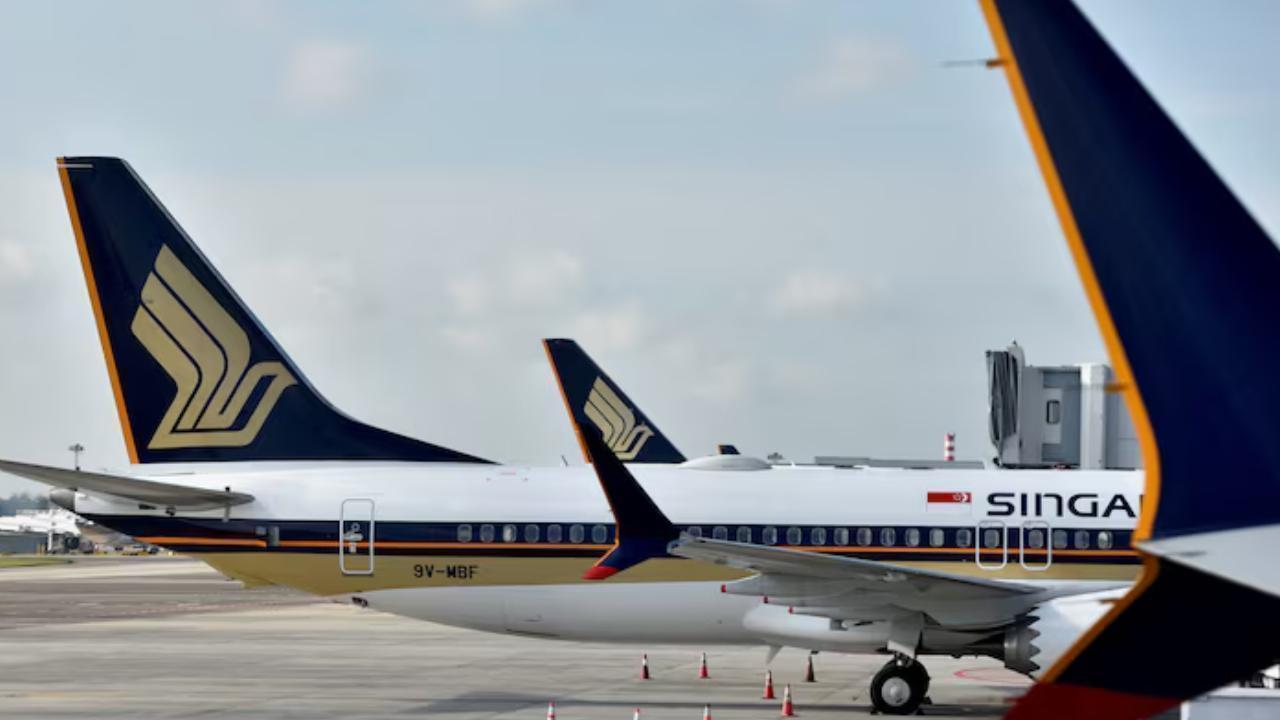You have not yet added any article to your bookmarks!

Join 10k+ people to get notified about new posts, news and tips.
Do not worry we don't spam!

Post by : Anis Farhan
Photo: Reuters
Singapore Airlines, one of Asia’s most respected carriers, has announced a significant drop in its first-quarter profits, pointing to reduced cargo demand and escalating international tariffs as the primary culprits. The announcement came during the company’s latest financial disclosure, raising concerns about the impact of global trade tensions on the airline industry—especially in Asia, where export-driven economies remain highly sensitive to shifts in demand and cross-border regulations.
According to the airline, net profit for the quarter ending in June declined by over 30% compared to the same period last year. While passenger traffic has held relatively steady and even seen some rebound in select routes, the cargo segment—once a stronghold during the COVID-19 pandemic—has faced continued contraction amid falling freight rates and increased competition. Analysts note that the softening cargo business, paired with mounting tariff barriers between key trade partners like the U.S., China, and the EU, has created a challenging environment for flag carriers like Singapore Airlines.
The company’s CEO stated that the recovery in passenger services remains on track, driven primarily by demand in South Asia and select long-haul routes to Europe and North America. However, the cargo segment, which had buoyed overall revenues during the global health crisis, is now dragging down performance. He also acknowledged that shipping volumes have declined in recent months, particularly due to reduced electronics and automotive part shipments from East Asia.
In addition to cargo weakness, the broader tariff landscape is applying financial pressure across operations. Recent policy shifts in both Europe and the U.S. have introduced new or expanded levies on goods ranging from semiconductors to consumer electronics—key export categories that underpin much of Singapore’s air cargo traffic. The company noted that these trade tensions have not only affected volume but also complicated logistics due to route changes and increased customs scrutiny.
Despite these challenges, Singapore Airlines maintains a cautious optimism for the remainder of the fiscal year. The company has announced new partnerships aimed at improving operational efficiency, including expanded code-sharing agreements and renewed focus on digital cargo tracking solutions. Management is also looking to optimize fleet usage by retiring older aircraft earlier than planned and shifting capacity toward more fuel-efficient models. These strategic pivots are expected to provide cost relief and align better with evolving consumer and cargo patterns.
Market analysts believe the airline’s proactive steps will help mitigate some of the economic headwinds, though the broader environment will remain uncertain in the short term. The International Air Transport Association (IATA) also warned that global air freight markets may face continued pressure throughout 2025 due to geopolitical uncertainty, weak consumer spending, and fluctuating fuel costs. As such, Singapore Airlines' future performance may heavily depend on how effectively it can diversify its income sources and navigate turbulent trade policies.
Investors have responded with moderate caution. Shares of Singapore Airlines dipped slightly following the earnings release, but analysts suggest the dip is more reflective of market-wide concerns rather than a loss of faith in the airline's long-term strategy. The company’s cash reserves remain strong, and its commitment to maintaining premium service standards has helped it retain a loyal customer base, even amid economic slowdowns.
The airline has also announced an internal task force focused on “resilience planning,” a multi-pronged strategy designed to address not only current revenue concerns but also longer-term challenges tied to climate regulations, supply chain disruptions, and future health emergencies. These forward-looking plans are expected to help stabilize operations and restore investor confidence over time.
For the time being, Singapore Airlines is urging patience and strategic discipline. The leadership emphasized that short-term financial volatility will not derail its broader goals of growth and innovation. The next few quarters will likely serve as a litmus test for how the airline—and indeed, the global aviation industry—can adapt to a post-pandemic world increasingly shaped by geopolitical shifts and trade fragmentation.
This article is intended for informational purposes only and reflects data available as of July 28, 2025. Newsible Asia does not take responsibility for any business, investment, or travel decisions made based on this content. Always refer to official airline and regulatory announcements for the most accurate updates.










Sri Lanka Ex-Intel Chief Arrested Over Easter Attacks
Former SIS Chief Suresh Sallay arrested by CID in connection with the 2019 Easter Sunday bombings th

Japan Reports Spike in Measles Cases Authorities Issue Alert
Japan confirms 43 measles cases in early 2026, prompting health authorities to warn potential contac

Korea US Clash Over West Sea Drill Communication
Conflicting accounts emerge on prior notice briefing, and apology during Feb 18-19 US air exercise i

Richard Liu launches $690M eco-yacht brand Sea Expandary
JD.com founder Richard Liu invests $690M in Sea Expandary aiming to produce affordable green yachts

China imposes export curbs on 40 Japanese firms over military ties
Beijing restricts dual-use exports to Japanese companies, citing remilitarization concerns, promptin

Malaysia moves to protect Musang King durian amid China impostors
Authorities safeguard Malaysia’s Musang King brand as durians from Thailand and Vietnam are being fa